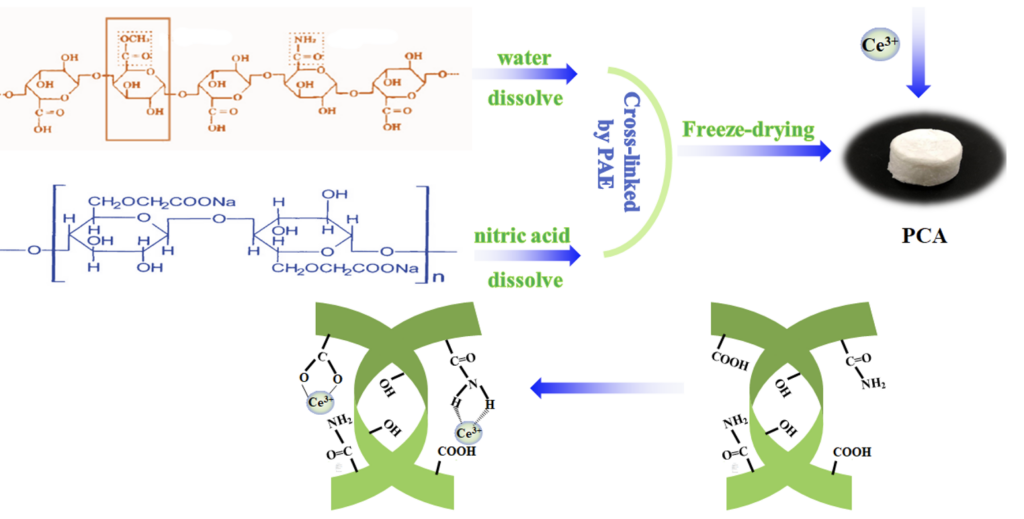https://www.sciencedirect.com/science/article/abs/pii/S138589472304799X?via%3Dihub
https://www.cas.cn/syky/202312/t20231205_4990265.shtml
Researchers at the CAS QIBEBT in Qingdao have developed a new type of biomimetic adsorbent material for the green and efficient adsorption of low-concentration rare earth ions from leach tailings in rare earth mining areas based on the enrichment motifs of the rare earth super-enriched plants-
In this work, a novel cellulose/pectin composite aerogel adsorbent based on ultra-enriched plant cell walls for effective rare earth enrichment was prepared for the recovery of rare earth elements in leach tailings, and the main components of the resulting adsorbent were systematically analyzed using SEM, FTIR, XRD and contact angle measurement instrument. The results showed that the PCA adsorbent surface has an excellent structural basis in the field of adsorption of rare earth ions with abundant active adsorption groups, low crystallinity and good hydrophilic properties. The thermodynamic study showed that the adsorption process conformed to the Langmuir model, and the theoretical maximum adsorption capacity reached 337 mg/g. The kinetic study showed that the adsorption process conformed to the quasi-secondary kinetic model, and the adsorption process was chemisorption. The adsorbent still had good adsorption performance after five adsorption-desorption cycles. From the FTIR and XPS spectral analysis, it is clear that the adsorption mechanism of PCA for rare earth ions is mainly realized by electrostatic interaction, ion exchange with -COOH and chelation with C-NH2. The novel composite aerogel PCA based on cell wall synthesis has potential application prospects as a green and efficient adsorbent with good regeneration performance.

